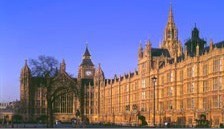The Chancellor of the Exchequer Kwasi Kwarteng has announced £45 billion of tax cuts in a ‘mini’ budget set to cost the exchequer around £100bn.
Kwarteng moved to axe the additional 45% income tax band, cut the basic rate of income tax to 19%, scrap plans for a hike in corporation tax, reverse next April's planned 1.25% National Insurance increase and abolish a cap on bankers’ bonuses in what has been described as the biggest tax cutting event since 1972.
The cost of Kwarteng’s bid to address UK inflation of 9.9% and boost the economy is estimated by the Institute of Fiscal Studies (IFS) to be around £37bn in the next financial year.
That total excludes the estimated £60bn already committed to tackle soaring energy prices by capping the average household energy bill to £2,500 and handing businesses an energy price guarantee for the next six months.
 Addressing Parliament this morning, Kwarteng said: “The Prime Minister has acted with great speed to announce one of the most significant interventions the British state has ever made.
Addressing Parliament this morning, Kwarteng said: “The Prime Minister has acted with great speed to announce one of the most significant interventions the British state has ever made.
“People need to know that help is coming. And help is indeed coming.”
Economic 'gamble'
Despite Kwarteng’s reassuring tone, Government’s economic policy has already attracted comparison to former Chancellor Anthony Barber's ill-fated "dash for growth" 50 years ago.
And Carl Emmerson, deputy director at the IFS, warned that the government's tax cutting plans were "a gamble on growth that may not pay off."
"While we would get to enjoy lower taxes now, ever-increasing debt would eventually prove unsustainable," he said.
"The government is choosing to ramp up borrowing just as it becomes more expensive to do so in a gamble on growth that may not pay off."
Yesterday (September 22) the Bank of England moved to increase interest rates by 0.5% to 2.25% - less than previously anticipated – as part of its bid to stem inflation.
Kwarteng said today that the measures being taken would “reduce peak inflation by around 5ppts", further claiming: “It will reduce the cost of servicing index-linked government debt and lower wider cost of living pressures.
“And it will help millions of people and businesses right across the country with the cost of energy.”
The Chancellor added: “Our aim, over the medium term, is to reach a trend rate of growth of 2.5%.
“And our plan is to expand the supply side of the economy through tax incentives and reform.
“That is how we will deliver higher wages, greater opportunities, and crucially, fund public services, now and into the future.”
Welcome support
National Franchised Dealers Association (NFDA) chief executive Sue Robinson welcomed Government's efforts to stimulate economic growth.
She said that the changed corporation tax plans would help reduce the tax liabilities for car retailers at a time when finances are stretched, adding that the energy price cap would "relieve franchised dealers of considerable amounts of financial pressure".
The NFDA also praised plans to accelerate the development of new roads, rail and energy infrastructure and its creation of the Local EV Infrastructure Fund and Rapid Charging Fund.
 But Robinson expessed disappointment at the lack of an update to business rates relief due to expire in April 2023. She said: "This discount has been critical to the recovery of automotive retail businesses. However, with the ongoing conflict in Ukraine and unprecedented cost of living pressures, we urge Government to reassure businesses that they will not face big tax rises come early next year.”
But Robinson expessed disappointment at the lack of an update to business rates relief due to expire in April 2023. She said: "This discount has been critical to the recovery of automotive retail businesses. However, with the ongoing conflict in Ukraine and unprecedented cost of living pressures, we urge Government to reassure businesses that they will not face big tax rises come early next year.”
Among the automotive sector commentators voicing an initial reaction to the Government’s economic plan was What Car? editorial director Jim Holder. He said: “With the economy now officially in a recession, action is needed.
“Our latest research of more than 1200 in-market buyers shows the poor economic climate and rising prices have pushed 40% of car buyers to delay their vehicle purchase – with the majority of those not looking to buy a car until next year.
“This is detrimental to an industry that employs 781,000 people across the country and contributes more than £14 billion to the UK economy in added value.
“While tax cuts and energy price freezes for both consumers and businesses will provide relief and increase spending in the short run, the Government needs to consider the long-term health of the industry which is set to become all-electric within the next decade.
“This will require significant investment and spending, which is hard to justify against the economic backdrop of a recession and rising interest rates.”















Login to comment
Comments
No comments have been made yet.